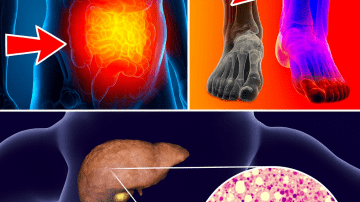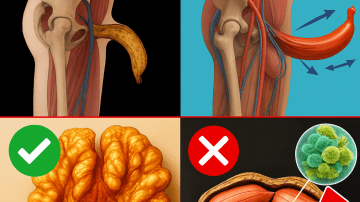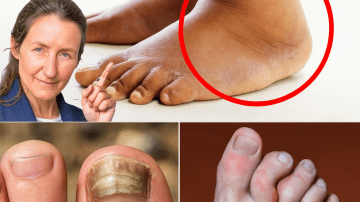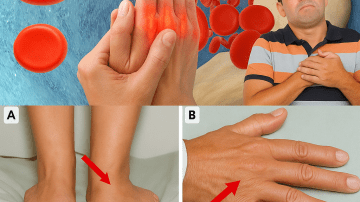Waking up to a damp pillow is rarely a welcome surprise. You might chuckle, shrug it off, or feel a twinge of embarrassment—but have you ever stopped to wonder what your body is trying to tell you? Drooling during sleep is more than just a quirky habit; it’s a signal, a whisper from your body about your health, sleep quality, and even your daily habits. Far from being just a minor annoyance, it could point to something deeper—something worth exploring.
What if that wet spot on your pillow is more than gravity at work? What if it’s a clue to unlocking better sleep, sharper mornings, and a healthier you? In this guide, we’ll unravel the mystery of nighttime drooling, diving into its causes, its hidden meanings, and practical ways to address it. Designed to captivate your curiosity and keep you engaged, this journey will empower you to listen to your body and take control of your rest. Let’s dive in and discover why you drool—and what you can do about it.
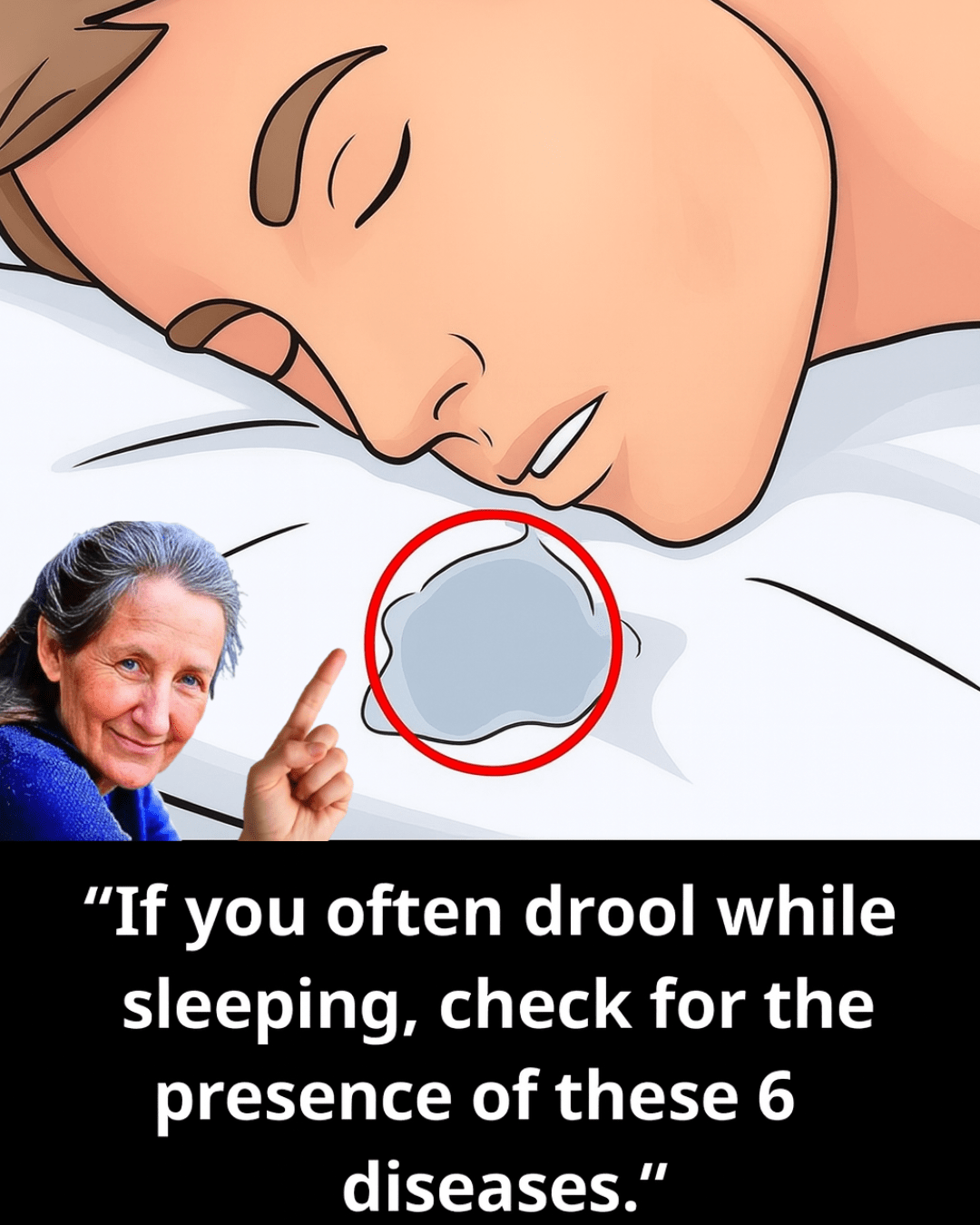
The Science Behind the Drool: Why It Happens
Drooling during sleep might seem like a simple quirk, but it’s often your body’s way of communicating. At its core, drooling happens when saliva escapes your mouth while you’re asleep—a natural process influenced by gravity, physiology, and even your health. Understanding the root causes can help you address it effectively, transforming restless nights into refreshing ones.
Here are the primary reasons you might be waking up to a soggy pillow:
Sleeping Position: Gravity’s Role in Drooling
🌙 The simplest explanation for drooling is how you sleep. If you’re a side or stomach sleeper, gravity naturally pulls saliva toward your pillow, especially if your mouth falls open. This is even more likely if your nose is congested from allergies, a cold, or sinus issues, forcing you to breathe through your mouth.
The good news? A small tweak in your sleep posture can make a big difference. Sleeping on your back, with your head gently elevated, can minimize saliva leakage and keep your pillow dry.
Medications That Turn Up the Saliva
💊 Did you know that some medications can turn your mouth into a saliva fountain? Certain drugs stimulate salivary glands, leading to excess production that spills out during sleep. Common culprits include:
- Antibiotics
- Sedatives
- Antipsychotics
- Pain relievers like ibuprofen
If you suspect your medication is behind your drooling, don’t stop taking it abruptly. Instead, have a conversation with your doctor. They may adjust your dosage or suggest alternatives that won’t leave you waking up to a wet pillow.
Deeper Health Signals: When Drooling Means More
⚠️ Sometimes, drooling is more than a quirk—it’s a sign of an underlying condition. If you’re drooling excessively or frequently, it could point to issues that deserve attention. Here are a few possibilities:
- Sleep Apnea: This serious condition disrupts breathing during sleep, often paired with loud snoring, morning fatigue, and restless nights. Mouth breathing, a common symptom, can lead to drooling.
- Gastroesophageal Reflux Disease (GERD): Heartburn and acid reflux can trigger excess saliva as your body tries to protect your throat, leading to drooling.
- Nasal or Throat Issues: A deviated septum, chronic sinus inflammation, or enlarged tonsils can block nasal passages, forcing mouth breathing and increasing drool.
If you notice drooling alongside snoring, heartburn, or poor sleep quality, it’s time to consult a sleep specialist or ENT doctor. They may recommend tests or treatments like CPAP therapy for sleep apnea, which can dramatically improve your rest and reduce drooling.
Surprising Triggers You Might Not Expect
🌟 Drooling isn’t always about sleep position or medical conditions. Some lesser-known factors can also play a role:
- Dental Problems: Inflamed gums, cavities, or misaligned teeth can make it harder to keep your mouth closed during sleep, leading to saliva leakage.
- Pregnancy: Known as gestational ptyalism, some pregnant women experience a surge in saliva production, especially in the first trimester.
- Vitamin B12 Deficiency: Low levels of this essential nutrient can affect nerve function, potentially increasing saliva production or affecting mouth control during sleep.
A routine medical check-up can often pinpoint these issues, offering simple solutions to keep drooling at bay.
The Emotional Side of Drooling: Why It Matters
Let’s be honest—waking up to a wet pillow can feel awkward, even embarrassing. You might worry about what it means or how it looks, especially if you share a bed. But drooling is a natural part of being human, and it’s far more common than you might think. More importantly, it’s a chance to tune into your body’s signals and make changes that enhance your health and confidence.
By addressing drooling, you’re not just aiming for a dry pillow—you’re investing in better sleep, sharper mornings, and a deeper connection to your well-being. Each step you take to understand and manage drooling is a step toward feeling more rested, refreshed, and in control.
How to Stop Drooling and Sleep Better
Ready to take charge of your nighttime drooling? These practical, science-backed strategies can help you keep saliva where it belongs and wake up feeling your best.
Adjust Your Sleep Position
🛌 Sleeping on your back is one of the easiest ways to reduce drooling. Use a firm pillow to elevate your head slightly, keeping your mouth closed and your airways clear. If you’re prone to rolling onto your side or stomach, try a body pillow to encourage back sleeping.
For those with nasal congestion, a humidifier or saline nasal spray can help open airways, reducing the need to breathe through your mouth.
Mind Your Evening Meals
🍽️ Heavy, greasy meals close to bedtime can worsen conditions like GERD, which triggers excess saliva. Opt for lighter dinners, and try to eat at least two hours before bed to give your body time to digest. Avoiding spicy or acidic foods can also help keep reflux—and drooling—in check.
Stay Hydrated Throughout the Day
💧 Dehydration can thicken saliva, making it more likely to pool in your mouth during sleep. Sip water consistently throughout the day to keep your body hydrated and your saliva thin. Aim for small, frequent sips rather than chugging large amounts at once.
Explore Dental or Medical Solutions
🦷 If dental issues like gum inflammation or teeth grinding are contributing to drooling, a visit to your dentist can make a difference. They may recommend a mouthguard or other devices to keep your jaw aligned and your mouth closed during sleep.
For mild sleep apnea or teeth grinding, mandibular advancement devices can help keep airways open and reduce drooling. In rare cases, doctors may suggest advanced treatments like Botox injections to reduce saliva production or minor surgery to address structural issues like a deviated septum.
Address Underlying Health Conditions
🩺 If you suspect sleep apnea, GERD, or other health issues, don’t ignore the signs. A sleep study can diagnose apnea, while an ENT specialist can evaluate nasal or throat problems. Treating these conditions not only reduces drooling but also improves your overall sleep quality and energy levels.
Fascinating Facts About Drooling
⚡ Did you know that drooling can be a sign of a healthy nervous system? Saliva production is controlled by your autonomic nervous system, which ramps up during deep sleep to aid digestion and protect your mouth.
🤰 Pregnant women often experience a condition called ptyalism, where saliva production spikes due to hormonal changes. Some report needing to spit frequently, especially in the early months.
🧠 Excessive drooling can sometimes be linked to neurological conditions, but this is rare. In most cases, drooling is a benign quirk that’s easily managed with the right habits.
These tidbits remind us that drooling is a natural part of how our bodies work—and sometimes, it’s even a sign that your system is doing its job.
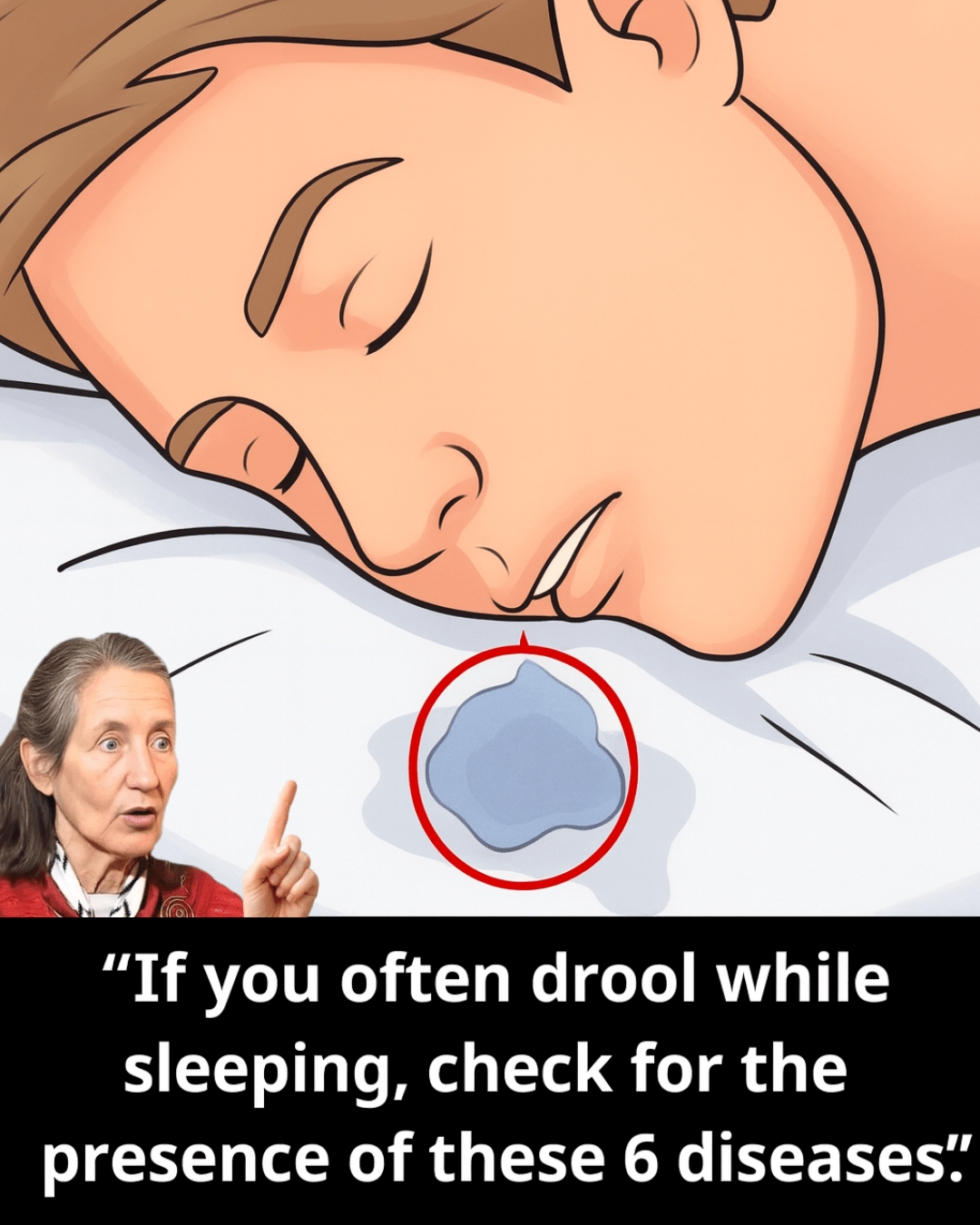
Your Questions Answered: Drooling FAQs
❓ Is drooling during sleep normal?
Absolutely. Occasional drooling is common and usually harmless, especially if you sleep on your side or have a stuffy nose. It’s only a concern if it’s excessive or paired with other symptoms like snoring or fatigue.
❓ Should I see a doctor every time I drool?
Not unless it’s frequent or accompanied by warning signs like loud snoring, chronic heartburn, mouth pain, or unrestful sleep. These could point to conditions like sleep apnea or GERD that need attention.
❓ Does sleeping on my side always cause drooling?
Not necessarily, but it increases the likelihood, especially if your mouth opens during sleep. Switching to back sleeping or using a supportive pillow can help.
❓ Are there serious risks tied to drooling?
Drooling itself isn’t dangerous, but it can signal underlying issues like sleep apnea or GERD, which require treatment to prevent complications. Addressing the root cause is key.
Tips to Enhance Your Sleep and Banish Drooling
To make these strategies even more effective, try these simple tweaks:
🌙 Create a Sleep-Friendly Environment: Keep your bedroom cool, dark, and quiet to promote restful sleep and reduce mouth breathing.
🧘 Practice Nasal Breathing: Before bed, try breathing exercises to clear your nasal passages and train your body to breathe through your nose.
🥗 Support Your Health: A balanced diet rich in vitamin B12 and anti-inflammatory foods can address deficiencies and reduce saliva triggers.
🦷 Maintain Oral Health: Regular dental check-ups can catch issues like gum inflammation or misalignment that contribute to drooling.
These small habits amplify your efforts, helping you sleep better and wake up to a dry pillow.
A Wake-Up Call for Better Health
Drooling might seem like a minor inconvenience, but it’s a window into your body’s needs. By listening to these subtle signals, you’re taking a powerful step toward better sleep, sharper mornings, and a healthier you. Each adjustment you make—whether it’s changing your sleep position, tweaking your diet, or seeking medical advice—is an investment in your well-being.
Why not start tonight? Try sleeping on your back, sipping water throughout the day, or scheduling that dental check-up. Share this guide with someone who might be waking up to a wet pillow, and let’s spread the word about the power of listening to our bodies. Here’s to restful nights, vibrant mornings, and a life where every wake-up feels like a fresh start.



